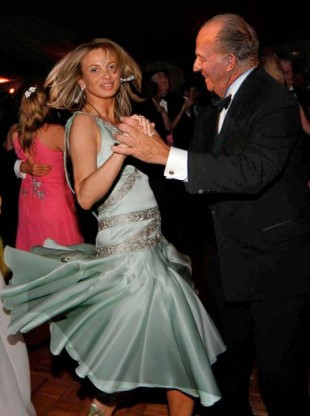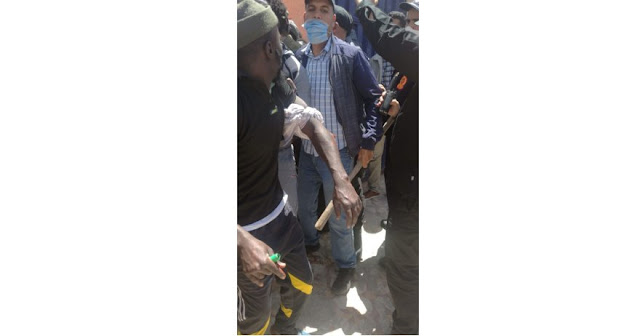Francia-Marruecos: una amistad muy cultivada
Why Does Mohammed VI Give The Spanish King A Plot Of Land In Morocco?
The Honorary King of Spain Juan Carlos I had obtained plots of land alongside the tourist Marrakech as a gift from the King of Morocco Mohamed VI, and this was mentioned in secret records published by the Spanish website Okdiario, belonging to the currently arrested police inspector, Jose Villarejo, and the King’s german friend, Corinna Larsen, who stated in her conversation that King Juan Carlos received a gift from the King of Morocco, which is a land in Marrakech.
According to the videos shown on the website, the friend of the King of Spain cried out, “They are doing very dangerous things. The king has been given lands originally belonging to the King of Morocco, he wants me to buy them to return them to him later … The lawyer Canonica was used to study the situation. If the king does not know what he wants to do, so we cannot put ourselves in a position … What do you want me to do with a property where there is nothing but camels and desert, there is no electricity, so you must invest in security too because this country is very dangerous”, she said, referring to the Kingdom of Morocco.
The article on the website adds that while the inspector was recording the call without her knowledge, she was complaining that the former king’s aides tried to use her as a front in corruption cases related to the king’s wealth, but she refused, and Corinna Larsen said, “This land has become a poisoned gift, because it is whatever its cost, it is an arid land, which extends for about 45,000 square meters, near the Moroccan city of Marrakech, and it belongs to lands owned by the Moroccan king”.
Corinna explained that the value of the land amounts to two million euros, but the question does not relate to the price of the land, but rather it cannot be sold … How will you sell land that does not have anything? It is as if you were given a piece of desert in Saudi Arabia, a poisoned gift will cost you six times the price … it is a piece of land that is not suitable for anything, the Spanish king’s lawyer, Dante Canonica, has asked me to do this in my name”.
Lawyer Canonica and Alvaro de Orleans are being investigated, among some of the personalities surrounding the king, by the Geneva prosecutor, Yves Bertossa, for the crime of money laundering, and the Spanish justice has opened an investigation into the files of the king’s corruption, and because of the repercussions of the scandals on the reputation of the royal establishment, Spain asked the current king, Felipe VI, to take steps to get away from his father and declare that he is not guilty of all his father’s corruption files.
At a time when the Spanish government is seeking to contain the anger of the Spanish people, by asking King Felipe VI to expel his father from the Royal Palace in Madrid, and from the membership of the Spanish monarchy because of this scandal, the scandal of Mohammed VI’s extradition of Moroccan lands unfit for cultivation goes unnoticed, without anyone moving. So, Mohamed VI will increase the registration of a new scandal within his record with scandals, and he was the one who silenced and violated Moroccan regions in favour of the Spanish Kingdom.
What calls for asking questions is that the Makhzen media talked about the scandal extensively, and threw arrows of accusations against the Spanish king, ignoring the Moroccan king as he is the donor of Moroccan lands, at a time when the Moroccan people were waiting to recover the lands of Ceuta and Melilla that are occupied by Spain.
Hence, we conclude that, if the Spanish King’s German friend was not afraid to enter the prison, the game’s streaks would not have been exposed, and from it, and that what is being obscured and spent in secret from gifting lands and privileges is much more than what was exposed.
Morocco’s so-called « Africanness » stripped by the coronavirus pandemic
Maroc : Une nouvelle chanson qui témoigne de l’état d’esprit de la jeunesse
Le Maroc est un pays jeune. C’est à la fois un avantage et en même un inconvénient. L’avantage réside dans le fait que cela constitue une force agissante à forte valeur ajoutée qui peut être utilisée à bon escient pour le développement socio-économique.





